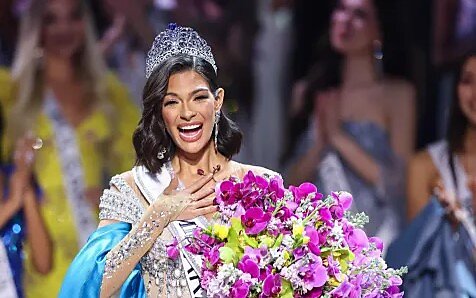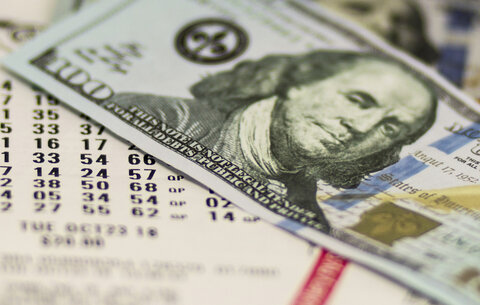
Miss Universe Has Become a Symbol of Freedom
“It is a breeze of fresh air for a country that has suffered so much in recent years.” That’s how Felix Maradiaga described last month’s victory of Nicaraguan Sheynnis Palacios in the Miss Universe 2023 pageant.
Maradiaga should know. He was a presidential candidate in 2021, for which he was imprisoned and, after more than a year and a half in jail, released, stripped of his citizenship, and exiled. He and Nicaraguans inside and outside of their country recognize that Palacios’ coronation represents much more than winning a beauty contest.
It did not take long for the spontaneous celebrations in Nicaragua’s streets and on social networks to be interpreted by Daniel Ortega’s dictatorship as a threat. First lady and vice president Rosario Murillo denounced them as an attempt to conduct a “destructive coup.” Last week, the regime charged the director of the local Miss Universe franchise, who remains outside of the country, with treason and has detained her husband and son.
In fact, Palacios’ victory not only succeeded in unifying a country fractured by the dictatorship. The opposition to the regime—read the Nicaraguan people—identified itself with Palacios upon learning that she participated in the mass, anti‐government protests of 2018. “The authorities and their accomplices repressed those demonstrations, killing at least 328 people, injuring some 2,000, and detaining hundreds.… Many protesters were detained for months, subjected to torture and other ill‐treatment including electric shocks, severe beatings, fingernail removal, asphyxiation, and rape,” according to Human Rights Watch.
The situation has only worsened since then. As the United Nations denounced in a report this year, the regime is committing “widespread and systematic human rights violations that amount to crimes against humanity.” The dictatorship has exiled hundreds of citizens and stripped them of their citizenship; it has closed down thousands of NGOs and dozens of media outlets and universities. In the Human Freedom Index, Nicaragua ranks 123rd out of 165 countries. When Ortega took power in 2007 it ranked 72nd.
Maradiaga is right when he says that Sheynnis embodies the spirit and odyssey of the Nicaraguan people. She comes from a humble background, graduated from a university shuttered by the regime, and evidently aspires to a modern and prosperous Nicaragua.
Most striking was Sheynnis’ answer to a question asked of her during the pageant competition, which seems to have assured her the victory: When asked who would be the woman in whose shoes she would like to spend a year, she replied: Mary Wollstonecraft because of her feminist struggle.
Who was Wollstonecraft? She was an English author who lived in the second half of the 18th century and who wrote A Vindication of the Rights of Woman, considered a foundational text of feminism. Wollstonecraft advocated for equal rights and freedoms between men and women. She said that women were not inferior, that they were rational beings, and deserved the same education and opportunities as men. She was a radical for her time.
Wollstonecraft was an Enlightenment thinker. Her circle included prominent classical liberals such as Thomas Paine and William Godwin. She opposed slavery and believed in the use of reason and the freedom of the individual. She was an enemy of monarchy, which she considered a form of tyranny.
Wollstonecraft was much more than a feminist; she was a liberal who wanted to limit the power of the state and promote values that she considered universal. Seen in that light, Palacios’ response to the pageant question appears quite astute.
Both for the people of Nicaragua and for the regime—which censored Palacios’ image when an attempt was made to paint her on a mural—Miss Universe has become a symbol of freedom.
Note: This article is based on a version that was originally published in El Comercio (Peru) on November 28, 2023.



